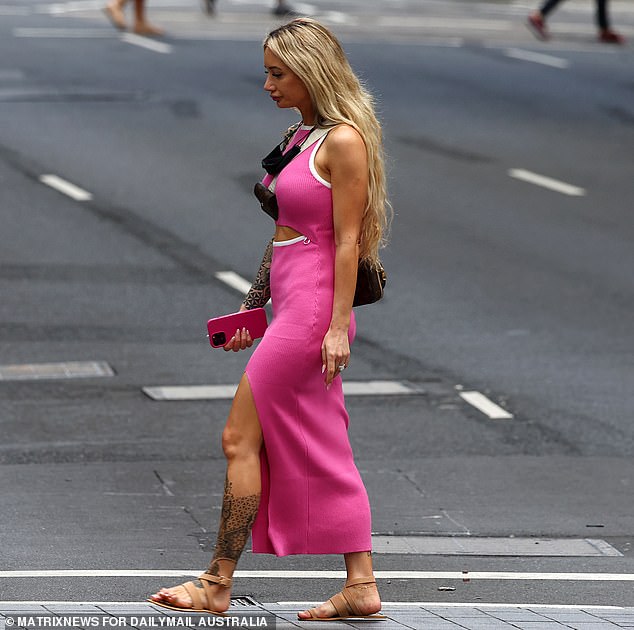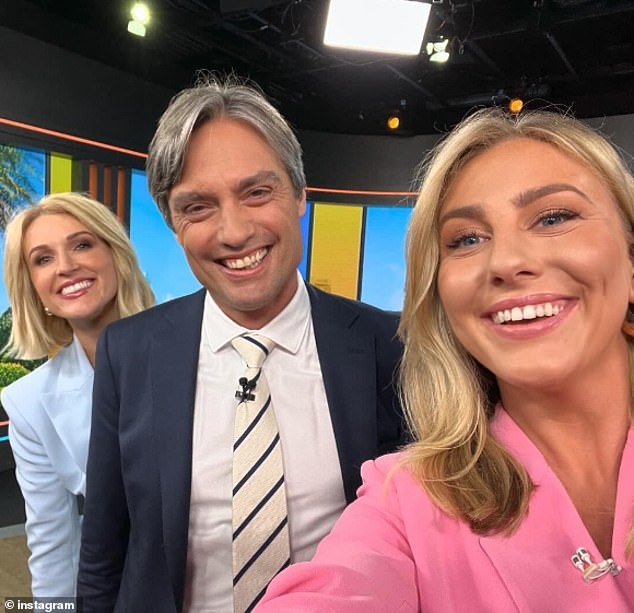A prominent doctor who led Australia’s Covid response has admitted governments and health officials have lost public trust and goodwill over their handling of the virus.
Dr Nick Coatsworth, who was deputy chief medical officer during the pandemic, said draconian measures to contain the virus had gone on for too long and caused people to become disengaged.
In an interview with Body and Soul, Dr Coatsworth said Australians were on board with what was being done to promote “public health” during the first year of lockdown measures.
“They were open to what we were doing,” he said.
“I honestly think that if we had eased up on restrictions a little earlier in 2021, we would have had a lot more people with us.”
“We had the opportunity to really change the way people think about health, but I think we missed that opportunity in 2021; the consequence was that people just mentally blocked out 2020 and 2021 altogether.”
Dr Coatsworth has previously said that “groupthink” and burnout led to poor responses to Covid in a 10-page submission to the ongoing special commission of inquiry into the pandemic.
Dr Nick Coatsworth (pictured centre) was one of the most prominent health officials during the Covid pandemic.
He also made a shocking admission that imposing vaccine mandates was wrong, after the Queensland Supreme Court ruled in February that forcing police and paramedics to get vaccinated or lose their jobs was “unlawful”.
Although Dr Coatsworth said Australia had assembled a high-level team of medical experts to advise on managing the pandemic, they lacked an ethical framework, meaning the focus became too narrow.
“This allowed the creation of a ‘disease control at all costs’ policy that, while appropriate for the first wave, was not well suited to the vaccine era,” he said.
Dr Coatsworth argued that the restriction and testing policies adopted to limit the first, more lethal strain of Covid in 2020 persisted far beyond their relative benefit, leading to workforce and testing shortages across the country.
He also thought that different approaches among states and between them and the federal government confused the public and eroded human rights.
“I strongly recommend that the inquiry recommend amendment of the Biosecurity Act to ensure that all disease control powers rest with the federal government during a national biosecurity emergency,” Dr Coatsworth wrote.

Dr Coatsworth said allowing Covid restrictions to drag on for too long alienated the public.
This means the federal government would be in control of state border closures during a pandemic.
Outside of “biosecurity emergencies,” states would retain their disease control powers.
Dr Coatsworth has previously taken aim at the Victorian government, under then Labor Prime Minister Dan Andrews, for its harsh reactions to Covid while suppressing criticism of Liberal Prime Minister Scott Morrison during the pandemic.
“Scott Morrison did not fine children for disease control offences, and Scott Morrison did not close two towers full of Australian refugees and immigrants,” Dr Coatsworth said.
“There were very real democratic rights that were trampled on during this pandemic.”
Dr Coatsworth was referring to the July 2020 closure of Melbourne’s public housing towers in Flemington and North Melbourne, which ultimately led to the Victorian government offering a $5 million settlement to those affected.
After the Covid inquiry was announced in September 2023, Dr Coatsworth took aim at Mr Andrews, who “thinks the Covid inquiry should focus on vaccines, national medical stockpiles and PPE”.
“It’s a word he would prefer never to enter the historical record of our (and his) response to the pandemic. But so it will be,” he said.
‘None of them are related to the central question. Proportionality,” added Dr. Coatsworth.
“It’s a word I would prefer never to enter the historical record of our (and their) response to the pandemic. But it will.”
In his latest interview, Dr Coatsworth admitted that the public profile he gained thanks to the pandemic has provided him with media opportunities, such as being a stand-in presenter on Channel Nine’s Today programme and hosting a new show, Do You Want to Live Forever?.
“The opportunity arose during the pandemic because people knew my face,” he said of the new documentary series focused on how to extend life expectancy.
‘I love what I do in the hospital, but it’s often too late.
‘Once someone has a chronic illness, it can’t really make any difference. You make the biggest difference if you can prevent them from getting the chronic disease in the first place.
“So I thought television was the best way to spread that message and communicate how to live a healthier life.”

